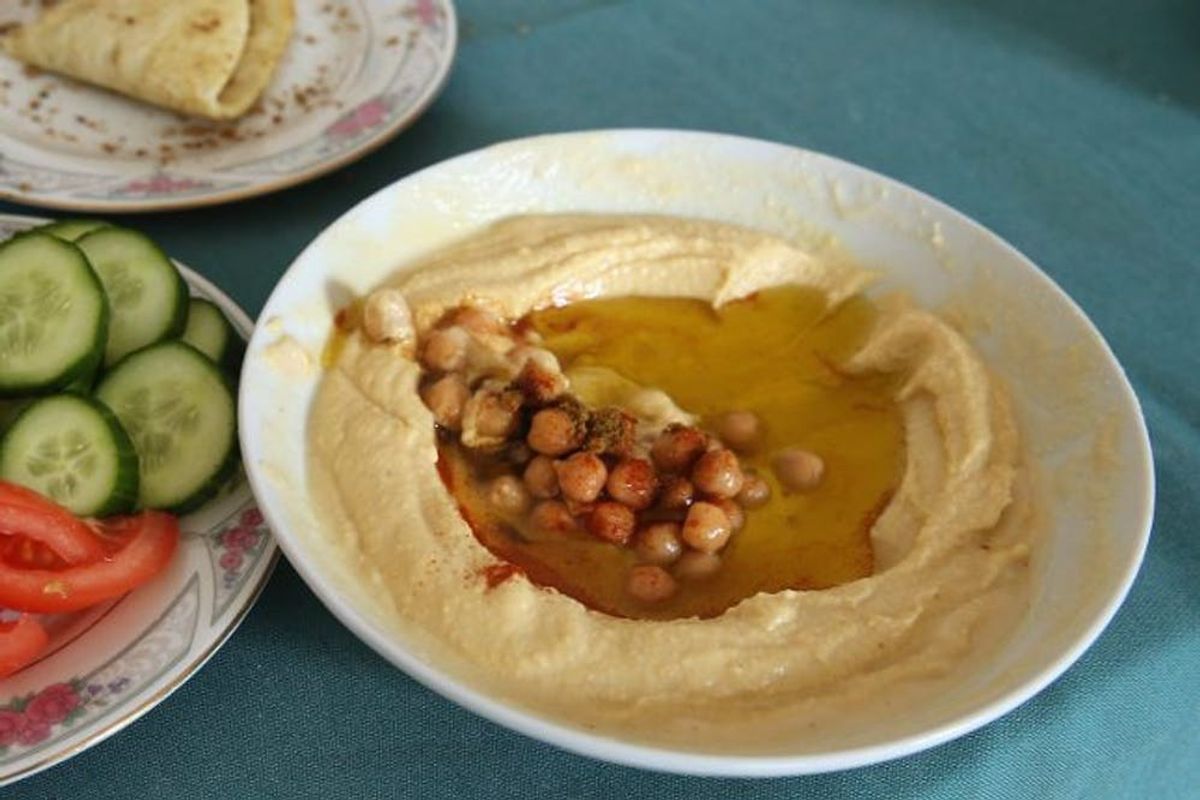Climate Change May Make Your Hummus WAY More Expensive

Your favorite low-cost snacking dip may get a whole lot pricier, thanks to good ol’ global warming.
That’s right, we’re talking about hummus. According to the New York Times, several years of drought in India have depleted chickpea production. While most of India’s chickpeas are consumed internally, the poor output has meant India is now importing more of the product, leading to global shortages.
20 years ago, this might not have been headline-worthy news. But today, hummus is an international obsession, as evidenced by these insane actuallisticles.

So far, the dearth of chickpeas is hitting the UK hardest, where about a third of food is imported. Hummus prices have reportedly jumped 29 percent in one year.
As the Times points out, this isn’t the first time a broken link in the global food chain has thrown the whole system out of whack. Last year, a cyclone in Madagascar pummelled the world’s vanilla supply and sent prices soaring, and the California drought of 2014 and 2015 made almonds a far pricier snack. New demand for chocolate in Asian countries combined with bad weather in West Africa made for some very expensive chocolate on Valentine’s Day in 2015.
Now, in Britain, the chickpea crisis has even caught the attention of the stars:
Noooooooooo!
Hummus Prices Are Rising Due To A Global Chickpea Shortage – HuffPost UK https://t.co/Ck7NvxON3t
— Stephen Fry (@stephenfry) January 29, 2018
Always an industrious folk, Brits are already coming up with solutions to the shortage. Many cooks and foodies have been publishing recipes for chickpea-free hummus. Others found it difficult to take the middle-class snack shortage seriously:
I am not one for eschatology, but I am pretty sure that a hummus shortage is predicted in the book of Revelation.
— Nate Perrin (@Nate7493) February 3, 2018
Bizarrely, this isn’t the first hummus crisis Britain has suffered. They had one just last year, when hummus had to be pulled from the shelves of most major grocery chains after customers complained of a metallic taste. That problem was solved fairly quickly — the culprit was one batch of bad peas at a major production plant.
With global warming and an ever more centralized food chain to blame for this year’s crisis, a quick and dirty solution seems far from likely.
Are you freaking out? Tell us @britandco.
(Photo via Getty)


















